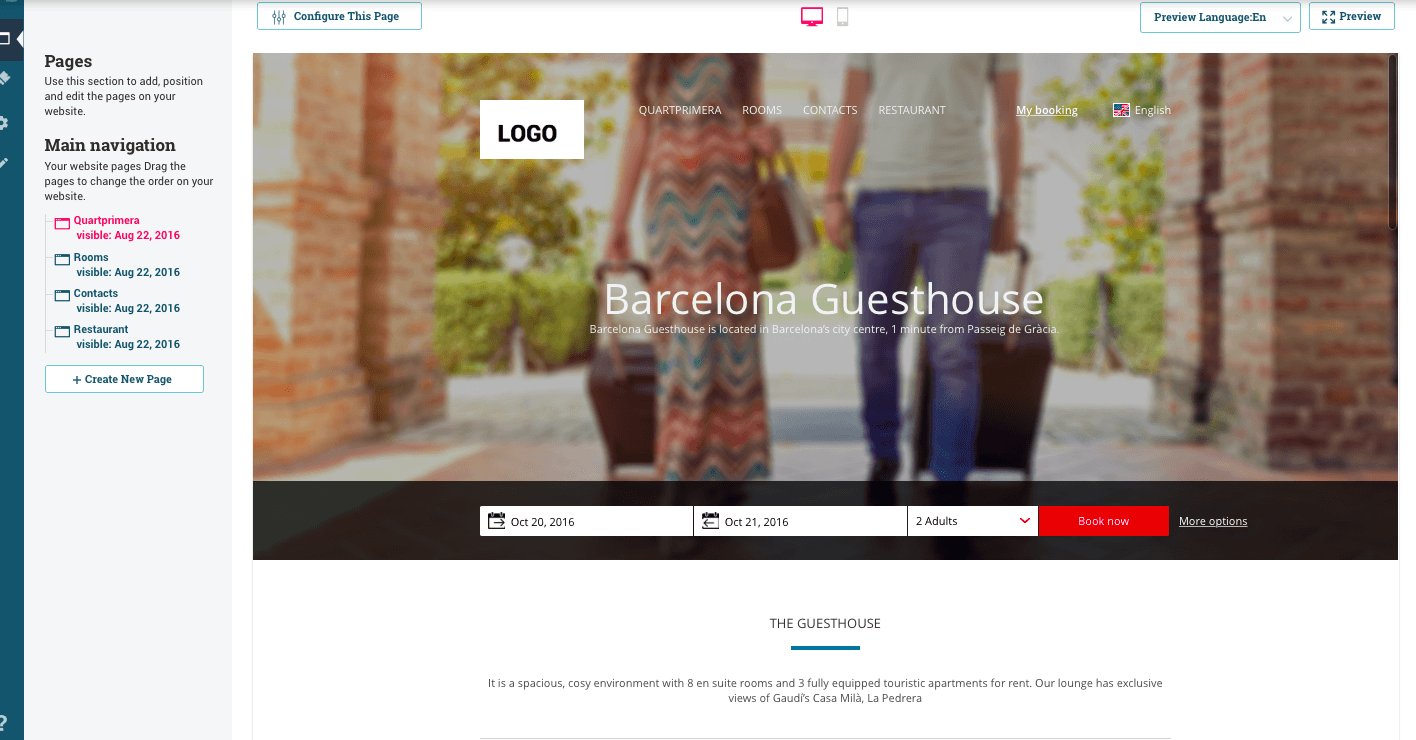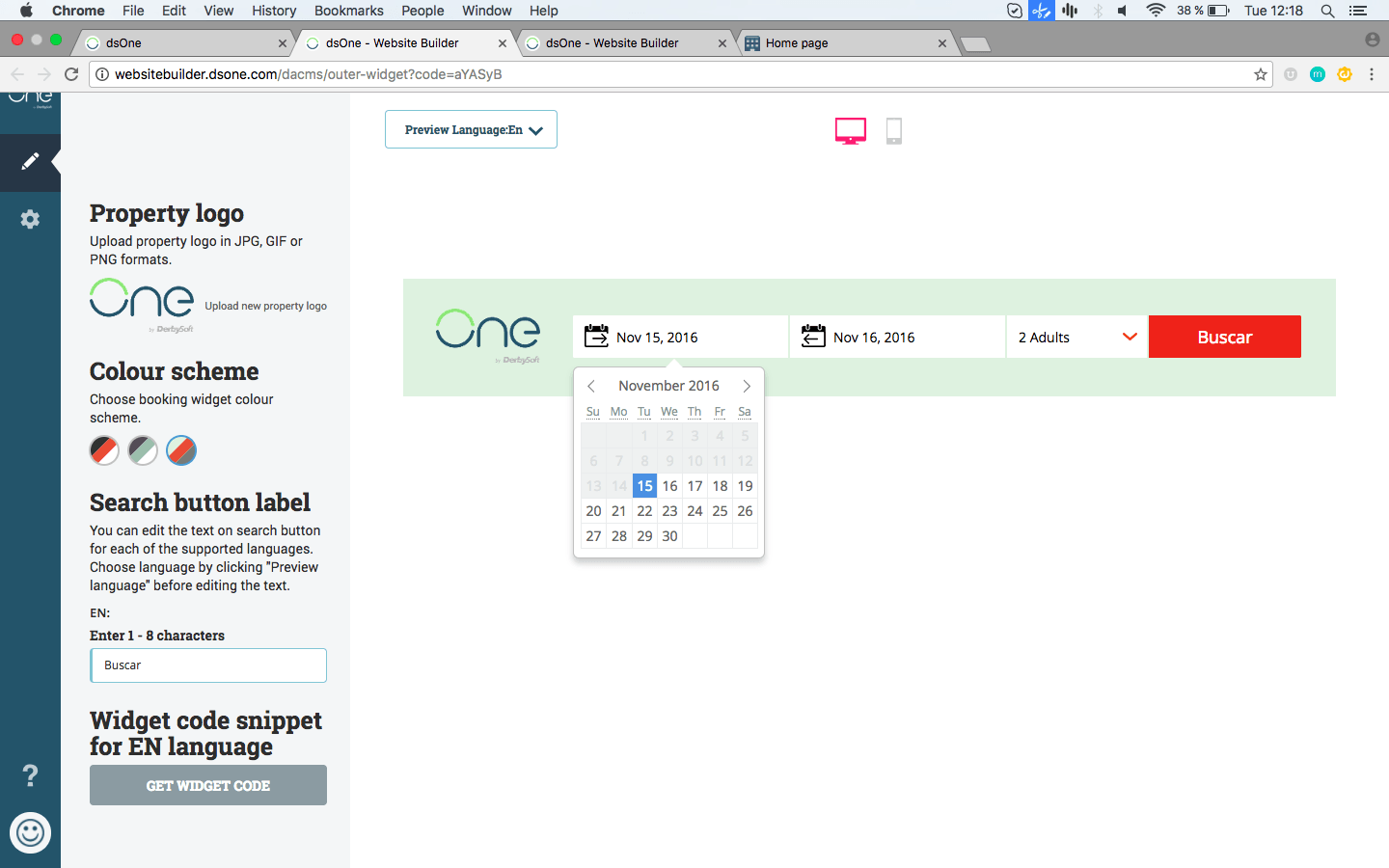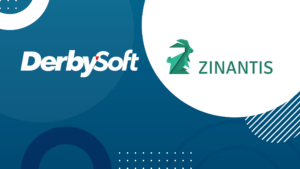In this age of Internet marketing, successful independent hoteliers need to know and practice a number of marketing rules to compete with the bigger players.
While some of these rules may seem sophisticated, the good news is that they’re within reach for every independent hotelier.
RULE 1—Write targeted hotel website content
Write content for your website that interests and informs the type of customers you wish to attract.
When you write your website copy, highlight the experiences your destination offers. Think about why people travel, and target these feelings and motivations. For example, if the area near your hotel offers vineyards and lovely wines, make sure you add this topic on your website content. Users searching for a thematic getaway on this topic are more likely to find your hotel as an alternative to stay.
The same idea applies to the description of your rooms. Think about how your rooms and other amenities can help a customer have a more pleasant experience at your hotel. Bring these out in the copy and imagery.

Your main objective when building your website should be to provide as much information as you can about what may attract your visitors. Your site visitors may come as a result of targeted outreach such as promotional emails or insert ads, or they may come as organic inbound traffic through online search.
Search engine optimisation (SEO) is another element to consider. SEO makes your property visible to online users searching for information about your locale or your types of accommodation. This, in turn, can drive more traffic to your site, increasing your bookings. We will be covering SEO for your hotel website in more depth in a future article, so stay tuned!
RULE 2—Set up one central Content Management System (CMS)
As you establish your marketing presence through a variety of distribution channels, you must make sure all of those channels present the same information to the potential customers looking for accommodation. Inconsistency in the property information online will get noticed and raise questions about the authenticity of your offerings.
Manually keeping all these channels in sync can be tricky and time-consuming. Having a central CMS where you maintain information about your property—room descriptions and amenities—makes it simple as there is only one place where this information needs to be updated. This central CMS should be paired with automated distribution mechanisms to maintain consistency across all channels at all times.

RULE 3—Make the booking process easy
You must make it as easy as possible for customers to book rooms on your website. There are many factors that go into customer decisions, so to increase conversions, it’s important that there are as few steps as possible to complete the booking with minimal distractions.
- Have a simple online booking engine.
- Make it available on every page of your website. When the customer reaches a decision to book, the booking engine must be readily available regardless of which page had the convincing copy.
- Every page must guide the visitor to the booking engine with a call to action. Different pages of your site will speak to different interests and emotions of potential customers. The call to action should leverage the visitor’s impulse to book.
- The booking process should last no more than 2-4 minutes. Only the bare minimum information needed must be collected.
– Customer’s name, email and telephone number
– Credit card details
– Book! - You should configure the button or booking box to have the same look and feel of your website. This develops brand recognition and helps the customer feel more at ease in proceeding with booking.

RULE 4—Learn and develop from your data:
Everyone seems to be focusing on data nowadays. Big Data is all the rage.
While data is important to overall success, there’s no need to stress about it. Simple reports can deliver relevant information that you can use to quickly, easily, and efficiently improve your hotel marketing strategy.
This selection of reports may help you improve your bookings:
- Channel reports—You can identify which OTAs work for you the best; which ones provide more bookings so you can continue to foster your relationship with them.
- Cancellation trends—Knowing which channels have a higher cancellation rate may enable you to plan your over-booking strategies to increase your occupancy rate.
- Occupancy rate—You can use this data to uncover periods of the year that are slow and tailor your promotions to target those slow periods.
One by DerbySoft
The game-changing way for independent hoteliers to manage hotel distribution
RULE 5—Use metasearch to increase direct bookings
- Use metasearch engines—direct distribution-marketing channels—such as Trivago, Tripadvisor, Kayak, HotelsCombined etc. to discover which segments of the market are most likely to book your property.
- Have a direct link to your website on these metasearch engines so as to increase your direct bookings and brand awareness. A direct booking can capture customer data in better detail. More direct bookings means larger and more detailed database of your customers. This enables you to understand your market better.
- Analyse this customer data to better segment and tailor your future campaigns and offers for each market (customer list) and consequently increase your conversions.
RULE 6—Never compete on price
- Price is not the only consideration for travellers when choosing their accommodation. Do not market your hotel as the cheapest but as one that offers the most value. Aim to be the best hotel value in the region.
- You may offer discounts and promotions from time to time, but plan these strategically. Make sure all your channels offer the same promotions. This establishes and enhances your reputation for quality.
- Create all your promotional rates based on one master rate that is directly related to the value your hotel offers to your guests.
RULE 7—Leverage the power of email
- Collect email address from all your clients regardless of how they came to book your property.
- Structure incentives to induce them to provide this information during check-in. For example, they may sign up for your newsletters in exchange for free access to your WiFi, a discount for meals, parking, or any other relevant service. This works even if they come through channels like OTAs and other travel agencies which do not provide this information at the time of booking.
- Once they choose to be part of your ‘loyal customers’, include them in your periodic emails that distribute valuable information about the location or special promotions you run for your property.
- Email marketing is one of the most powerful ways to attract customers back to your hotel. Since most people go on holiday every year or they have to travel to the same city for business, bring your hotel back to their minds by sending them strategically timed direct emails, typically in the form of newsletters.
RULE 8—Be active on social media
- Establish your presence on popular social media channels. Social media is a great marketing tool for independent hotels. It allows you to keep contact with your repeat customers, know their preferences and exceed their expectations during their next visit.
- Offer targeted special deals just for your social media fans to generate direct bookings on your website.
- Link your website with all your social media profiles.
- Encourage direct communication between you and your customers. Being easily contactable and responding personally in a timely fashion are important aspects of independent hotels’ successful marketing strategy.
DerbySoft’s Offering for Practicing these Rules
One, the integrated platform specially designed for the independent hotelier, helps you address each of the rules listed here with a convenient and easy-to-use interface. Find out more about One and how it could help your business.
One by DerbySoft
The game-changing way for independent hoteliers to manage hotel distribution

